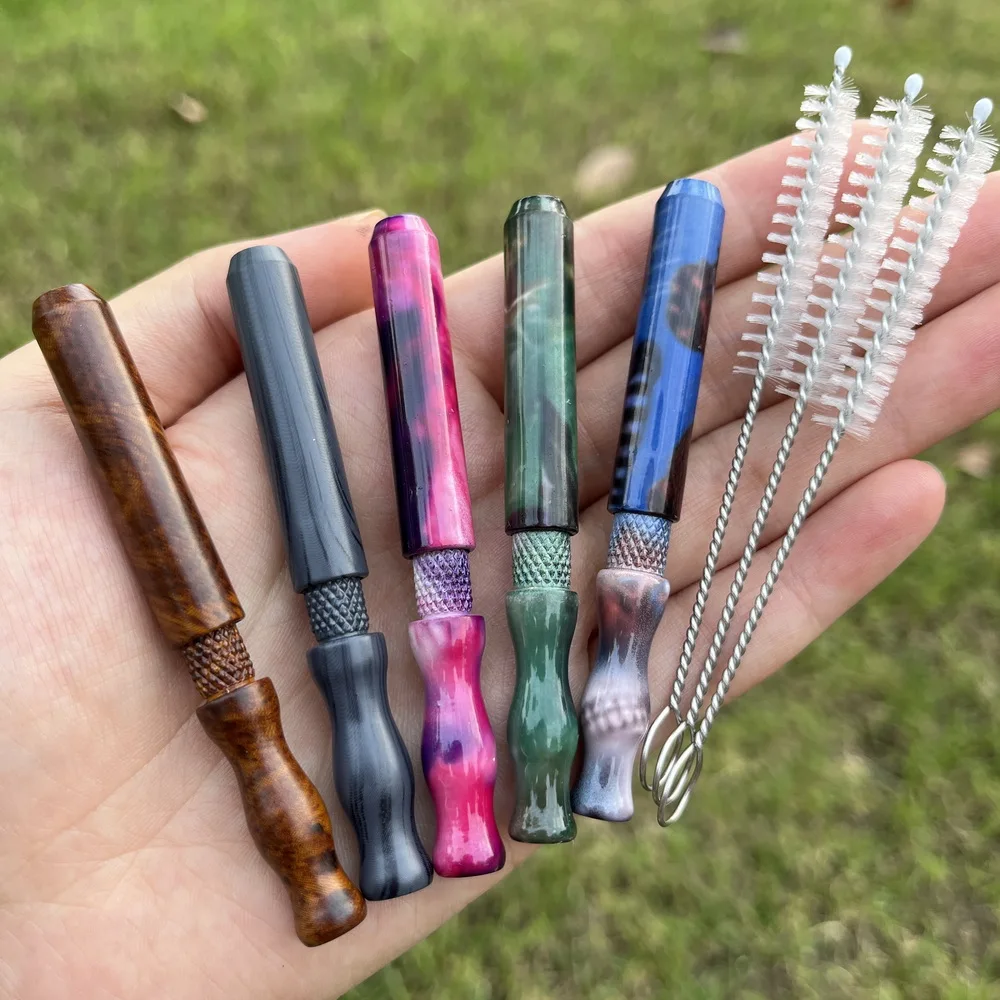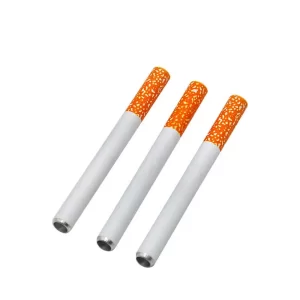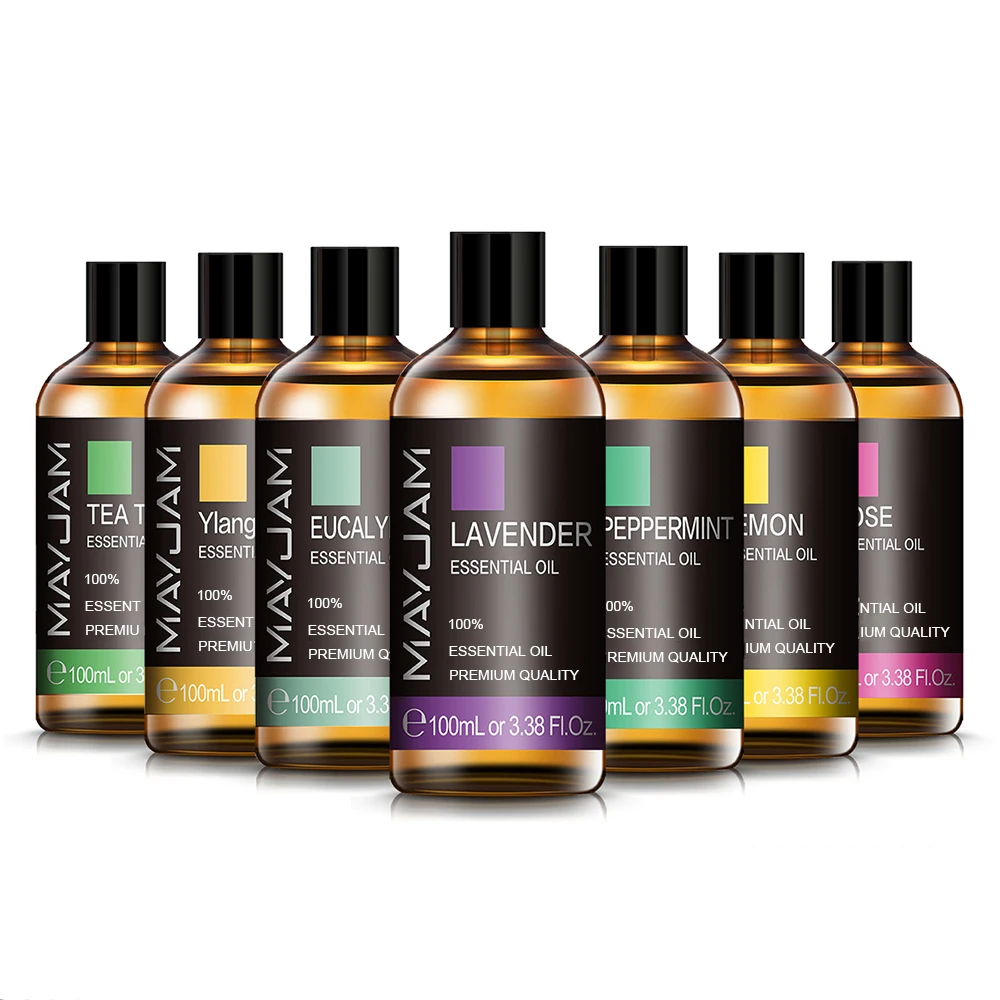Trump’s shutdown deal quietly recriminalizes most hemp-derived THC products next year, capping them at 0.4 milligrams of total THC per container and banning synthetics. From Texas to Minnesota, governors, brewers and farmers are already signaling they’ll regulate on their own terms instead of treating Washington’s new limit as the last word.
TL;DR:
- Trump’s new law redefines legal hemp, caps products at 0.4 mg total THC per container, bans synthetic or chemically converted cannabinoids and takes full effect in November 2026 after a one-year transition.
- Texas, Kentucky, Minnesota, North Carolina, Florida and others are testing the edges: keeping hemp THC legal under state law, building strict regulatory frameworks or openly organizing to change the federal rules.
Last week, High Times broke down how Congress ended the longest government shutdown in U.S. history and, in the process, scheduled the recriminalization of most hemp-derived products. The deal President Donald Trump signed caps legal hemp at 0.4 milligrams of total THC per container, bans synthetic or chemically converted cannabinoids and gives the industry one year before most hemp products (including drinks, gummies and vapes) are treated as Schedule I marijuana.
On paper, the ban is national and absolute. In reality, it’s already turning into a state-by-state fight over who actually controls cannabis policy.
Paper Law vs. Real-World Enforcement
Technically, cannabis has been federally illegal the whole time, yet a $32 billion marijuana industry operates in dozens of states. Now, a $28.3 billion hemp sector is being shoved into the same contradiction.
Law professor Jonathan Adler told MJBizDaily: “While marijuana is illegal for purposes of federal law, the federal government doesn’t have the resources, doesn’t have the personnel to go after individual retailers, individual buyers, let alone individual users.” If that is true for state-licensed cannabis, it is even more true for hemp seltzers in grocery stores.
In Ohio, for instance, this tension is already out in the open. Governor Mike DeWine issued an executive order to ban hemp-derived THC at the state level, but a judge put the order on hold. Now, lawmakers are talking about pulling hemp THC into the state’s cannabis regime instead of treating it as pure contraband. According to ABC-5, House Speaker Matt Huffman, who supports stricter rules, still asked: “Now, are we going to go around and start cuffing 17-year-old clerks at gas stations? No, but we’ve got to get this thing in shape.”
Texas and Kentucky Push Back
Texas now sits in direct conflict with the new federal definition. Economist Robin Goldstein writes in the Houston Chronicle that the state’s “THC hemp business” represents “a $4.5 billion industry that supports thousands of businesses, most of them small and independent.” He credits Governor Greg Abbott with taking “courageous action to save Texas hemp” by vetoing a state ban and issuing an executive order that kept intoxicating hemp products legal under HB 1325.
Under Abbott’s order and HB 1325, Goldstein notes: “THC hemp products have already been explicitly legalized under Texas law.” Now the shutdown deal makes those products illegal again at the federal level, but state law “is therefore now in conflict with U.S. federal law.” In his words, “recreational intoxicating hemp is just as legal in Texas as recreational intoxicating cannabis is in California,” and “Texas and its THC industry simply join the conflicts-with-federal law club.” His bottom line: “I see no more reason that THC hemp businesses should stop operating in Texas than that THC cannabis businesses should stop operating in California.”
In Kentucky, the governor is sending a similar signal, albeit in softer tones. When asked about the federal hemp language, Governor Andy Beshear said at a press briefing that “hemp is an important industry in Kentucky,” and that “we should have appropriate safety regulations around it, but we should make those regulations here in Kentucky —talking to the industry and making sure that we get that balance right.”
The Governor added: “I think that we can protect our kids. I think that we can do the right thing to protect all of our people while not handicapping an industry that supports a lot of people.” Meanwhile, Senator Rand Paul tried to strip the hemp ban from the bill and warned leadership it would devastate the hemp sector, while Senator Mitch McConnell, who pushed hemp legalization in 2018, led the effort to close the so-called loophole.
Beer Fridges, Hemp Fridges and a 0.4 mg Cap
In Minnesota, hemp drinks aren’t a side hustle; they’re a core business.
Minnesota Public Radio reports that the state’s hemp-derived cannabinoid sector is “one of the most successful in the country.” The Office of Cannabis Management says Minnesota businesses, including breweries, “paved the way for the hemp-derived THC beverage market” and built a regulatory framework around low-dose drinks.
As Omar Ansari, owner of Minneapolis-based Surly Brewing, told MPR, “people are mad that this is how it played out. Like, ‘Wait a second, they snuck this into a funding bill?’ That’s crazy.” Surly sells hemp-derived THC drinks with “a range of 3 to 10 milligrams of THC per can.” Minnesota’s standard is 5 milligrams per serving. The new federal cap is 0.4 milligrams per container. “This is terrifying for us in the industry because if it doesn’t change, there will be a lot of breweries that close,” he said.
Josh Collins, spokesperson for the Office of Cannabis Management, said the agency is “disappointed to see the federal government make such significant changes in the federal framework” and that “a system that allows Minnesota’s approach… is the best way to ensure the products that Minnesotans are seeking are available and safe.”
Shops and Farms that ‘Can’t Really Pivot’
In North Carolina, the federal ban is landing on top of a hemp “wild west” that the state never fully regulated.
NC Newsline visited Redhead Hemp in Durham, a shop with a “Canna Cafe”, where people sit with hemp-infused teas and coffee. Manager Hannah DeLange called it “a space for all,” saying “it should be a plant for all the people, and it should be accessible.”
Owner Emma MacAdam said: “We found out the morning of the Senate vote that this was occurring. It was pretty clear when they slipped it in the bill that that bill was going to pass, so it kind of felt like a really sleazy way for them to just slide their agenda into a bill that was very necessary and important for so many people.” The new cap would eliminate “about 99.5%” of their stock.
Farmer Dana Rider of Otherside Farm told NC Newsline that hemp is “part of our income and helps keep the farm afloat,” and that many customers “don’t want to feel different, they don’t want to have this altered consciousness… They just want to feel better.” His farm sells only full-spectrum products. “For us, we can’t really pivot, right?” he said. “We would not be around anymore, basically, which is sad to think about.” Nevertheless, until someone tells them to stop, they plan to “keep selling our stuff and growing and producing our products.”
At the same time, hemp seltzers have become a lifeline for many breweries. Axios Raleigh reports that Raleigh’s Trophy Brewing launched a delta-9 hemp seltzer called Starry Eyes. Co-owner Les Stewart said: “We approached [making our THC seltzer] with the idea that regulation was coming and, frankly, welcome. But this is beyond that. This is an intentional industry killer.” Groovewagon founder Reilly Dunn warned that, if legal hemp disappears, “they’re going to go straight back into the criminal markets.”
Florida Proves Regulation Is Possible
Florida spent the whole of 2025 trying to show that hemp can be regulated like food and alcohol instead of banned altogether.
A detailed analysis from ACS Laboratory notes that Florida’s hemp economy now supports more than 100,000 jobs and billions in wages. Lawmakers tried to ban intoxicating hemp in 2024 with SB 1698, but Governor Ron DeSantis vetoed the bill after warnings it would “shutter small businesses and erase thousands of jobs.” A bipartisan hemp workgroup tried again in 2025: that effort collapsed before a final vote.
With the legislature stuck, the Florida Department of Agriculture and Consumer Services (FDACS) stepped in. A March 2025 rule aligned hemp extracts with food-grade safety standards, requiring full-panel lab tests, banning synthetic cannabinoids, mandating child-resistant packaging and QR-linked lab results, and setting a 21-plus age limit. A November update tightened child-protection and marketing rules even further.
Eleven days later, Trump signed the shutdown deal. ACS notes that the federal law “limits total THC to 0.4 milligrams per container, a threshold so low that it disqualifies most hemp extracts currently sold, including many nonintoxicating formulas,” and bans all synthetic or chemically converted cannabinoids. The U.S. Hemp Roundtable called the move “a serious blow”, but added: “We’re disappointed, but not defeated. Our new mission: 365 days to regulate, not ban.”
What Rebellion Really Looks Like
The new federal definition pulls most hemp drinks, gummies and vapes into the same legal bucket as marijuana under the Controlled Substances Act. That means possible 280E exposure, banking and insurance problems, and interstate shipping headaches even for companies that have never even been near a cannabis dispensary.
But the rebellion is not made by governors telling people to ignore Washington. It looks more like:
- States like Texas keeping intoxicating hemp legal under state law and expecting state police to enforce state statutes first.
- Officials in places like Kentucky and Minnesota saying hemp is an “important industry” that should be regulated, not erased.
- Brewers and farmers in North Carolina and elsewhere planning to “keep selling our stuff” while they lobby for a fix.
- Florida enforcing strict testing and child-safety rules as proof that hemp can be managed without burning the entire sector down.
Congress set a new boundary and left everyone else to clean up the details. The shutdown ended. The one-year hemp clock started. What happens between now and November 2026 will decide whether this ban becomes permanent… or the crisis that finally forces lawmakers to write rules that match the way people actually live and consume cannabis.
Photo: Shutterstock


























